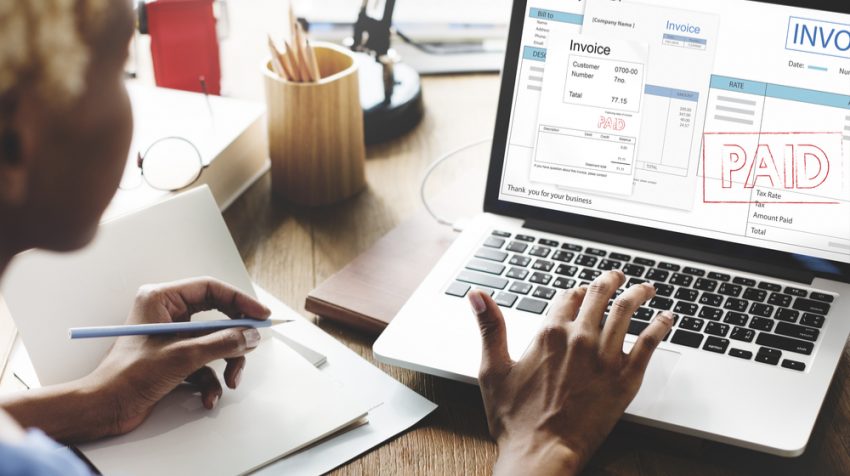Top Tips For Improving Credit Score
Improving credit score – a good credit score is important throughout your life. You don’t know when you will need to take out credit, but having a good score is very beneficial. For example, when purchasing your first property, a credit check will be done to see if they are willing to lend as much to you.
When applying for credit, a credit referencing agency will be used to determine your financial position and whether they believe you will be able to pay back the loan. If you have borrowed a lot or don’t pay it back on time, the credit agency will know this, reducing your score. Luckily, a bad credit score is not permanent, and with a few changes to your lifestyle, you can month by month improve your score and show the lender that you are credit-worthy should you need it.
What score is classed as what with the credit referencing agency?
The two major referencing agencies a lot of companies use are Experian or Equifax. Both these companies have a scoring system that decides whether you are considered to have a good credit score or a bad credit score; below is a breakdown of their scoring.
- 961+ is classed as excellent
- 881 to 960 is classed as a good score
- 721 to 880 is classed as average
- 0 to 720 is classed as a bad credit score
- 466+ is classed as excellent
- 420 to 465 is classed as a good score
- 380 to 419 is classed as average
- 0 to 380 is classed as a bad credit score
Overall there are several ways to improve your score, and by following some of our steps below, your credit score will hopefully improve, resulting in lenders more likely to let you borrow from then. If your credit score is bad and you need to improve it, use Wise Loan for bad credit. Below are ten ways you can improve your credit score.
Improving Credit Score: Pay your bills on time 
It is vital you pay your bills on time. If not, this can have a detrimental impact on your credit score and reduce lenders’ chances of letting you borrow from them. Put together a spreadsheet of all your monthly payments and their due dates and at the start of each month, make sure you go through and make sure they are all paid. This will not only improve your credit score as lenders will know you are more reliable, but it will also allow you to borrow more in the future should you need to.
Check for mistakes on your credit profile
We are all human, and sometimes mistakes are made. When running a credit check with a company like Equifax or Experian, take a look through the result and check that the information they have on you is correct. If things like your address are spelled wrong or your surname, this can cause a lower score to be shown. If something does appear, make sure you contact the credit agency to get it corrected.
Lower the amount you are borrowing
The more you borrow, the less likely you will be able to borrow more as other lenders will see you are already borrowing money. By paying off some of your debt and lowering the amount of money you borrow from a lender, this will come across positively. The more you pay off, the better your credit profile will look, putting you in a better position.
Get some credit if you won’t have some already
It sounds silly, but if you haven’t ever had credit before, lenders are less likely to lend to you and give you a lower credit score as you have no borrowing history. If this is the case, getting a small amount of credit and paying it off regularly and correctly will improve your credit score. Having a mobile phone contract or a credit card with a low limit is an excellent way to get a credit history and start showing lenders that you can look after your finances and pay things back.
Check for fraudulent activity
Unfortunately, as much as we wish this doesn’t happen, it does and sometimes without you even knowing. If someone has tried to make a fraudulent claim under your name in the past or present without you knowing, it can harm your credit rating, especially if it’s a financial scam that involved them taking credit out in your name. Don’t panic if this is the case; simply report it to the credit referencing agency, and they will investigate and get it taken off of your profile, improving your credit rating.
Check you are not linked to someone else credit profile
If in the past, you have taken out credit jointly with someone else, but their credit profile isn’t perfect, this could negatively be affecting you. If you are a university student and your roommates suggest getting a joint account for bills, it is advised you do not go through with this as you may not know their credit history. Instead, suggest that one of you pay it and the other pay the money to that person.
Pay off more than the minimum amount 
When paying your monthly payments, it is advised that you pay more than just the minimum amount. If you are paying interest, it can take a long time to pay off your debt, adversely affecting your credit rating. Lenders can also see that you only pay off the lowest amount possible, meaning that they may be less likely to lend to you in the future. Plus, by paying the minimum amount, you are prolonging the debt, and it will take longer to get rid of it finally, thus improving your credit score.
Have you got a county court judgment on your profile (CCJ)
County court judgments can have a really negative effect on your credit ratings, and lenders will see this straight away. A country court judgment will stay on your credit profile for six years and be used against you when a lender judges whether or not to let you borrow from them. If you are struggling to pay back your loans, you can speak to a specialist who will be able to assist you, especially during this pandemic. If you are expecting to receive a country court judgment, make sure you pay it within 30 days of receiving the notice, and it will be taken off your credit profile.
Think before you apply for credit
Whenever applying for credit, a credit footprint is left on your account, telling lenders that you have had a credit check. The more credit you apply for, the more footprints left on your account, showing lenders that you keep applying for more credit, therefore reducing your credit score. Before applying for credit, ask yourself, do you really need that item? Or can you get by without? Sometimes there is no need for credit, and by just waiting a few months, you could purchase the product outright instead of borrowing to get it sooner.
Improving Credit Score: Register to vote 
If you aren’t registered to vote, you won’t be on the electoral roll. This means that when a lender checks your profile to confirm your address, you won’t appear. By not being on the electoral roll, you may find it extremely challenging to get credit with a lender rejecting your application. It’s a simple thing that will enhance your chances of getting credit and improve your overall credit score.
What to do if you see a mistake on your credit profile
As soon as you see a mistake on your credit profile, report it to the credit agency so they can investigate and correct your profile for you. When registered, the credit agency has a maximum of 28 days to investigate and inform you about their findings, and if they disagree with you, let you know so that you can appeal their decision if they are still wrong.
Throughout the investigation process, the error you are seeing should be hidden so that the lender does not see it, should you require a credit check during the process. If the error is from a particular lender, you can always go directly to them to find out why it has appeared and to ask them to contact the credit agency to get it removed.
Overall, the points above will help improve your credit score. However, to improve your credit score, you must be dedicated to paying back your loans on time and the correct amount. If you consistently do this, you will not only reduce the amount you borrow but put yourself in a better financial position.
Financial stress is a significant burden on individuals and couples alike; this is why you must take action as soon as possible. After all, the sooner you reduce your borrowing, the lower your monthly payments will be. If you need to borrow something in the future, the lenders will be more likely to lend to you.
Have you been trying to better your credit score and have been successful? What tips would you advise? Let us know in the comment box below; we would love to hear from you.























